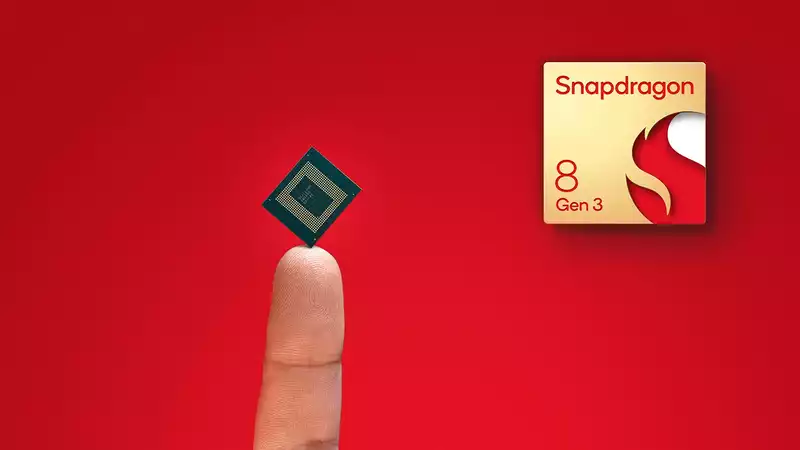Qualcomm announced its Snapdragon 8 Gen 3 chipset earlier this week, promising a quantum leap in performance and AI power. But just how powerful is it? And more importantly, can it beat the iPhone 15 Pro? Official benchmark scores have good news in that regard.
According to reports, Qualcomm did not allow anyone to conduct their own benchmark tests at the Snapdragon Summit in Hawaii. However, official benchmark scores using devices called "Qualcomm Reference Designs" (QRDs) were revealed. In the past, these reference devices have performed quite close to benchmark tests of commercial devices.
The QRD features a 6.65" AMOLED display (2340 x 1080) running at up to 144Hz, 16GB of LPDDR5 RAM, 512GB of UFS 4.0 storage, a 4192mAh battery pack, and runs Android 14.
In Geekbench 6.1 single-core scores, the Snapdragon 8 Gen 3 scored a single-core score of 2,329 and a multi-core score of 7,501, which is very impressive. The Samsung Galaxy S23 Ultra with the overclocked Snapdragon 8 Gen 2 for Galaxy had previously achieved a single-core score of 1,578 and a multi-core score of 5,081. This is quite a leap.
Then there is Apple's A17 Pro, the first (and so far only) 3nm chipset available for smartphones. In single-core tests, the iPhone 15 Pro scored 2,890 and the Pro Max 2,783. In the multi-core test, both models scored 7,194 and 6,945, respectively.
In other words, at least on Qualcomm's ideal device, the Snapdragon 8 Gen 3 underperforms the A17 Pro in single-core tests, but outperforms it in multi-core tests. As for graphics, the QRD scored 19,114 in 3DMark Wild Life and 5,338 in 3D Mark Wild Life Extreme. iPhone 15 Pro scored 15,747 and 3,623 in the same tests, with Pro Max's 15,339 and 3,481 followed closely behind.
How this performance translates to actual device performance is unclear, but it does indicate that Qualcomm has made serious strides in catching up to Apple. However, it is clear that Qualcomm has made significant strides in catching up to Apple, and will likely have to wait until devices with Gen 3 chips begin to be released and run their own tests to see more about the improved performance of the chips.
Needless to say, if these scores show what a standard Snapdragon 8 Gen 3 can achieve, we are very interested to see how well the rumored Galaxy variants perform. It should be announced around mid-January.










Comments